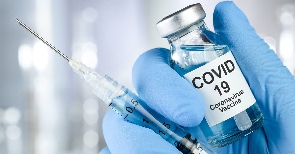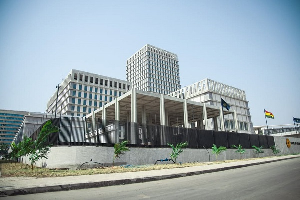Misconceptions relating to the Covid-19 pandemic have had some effect on the intake of treatment for malaria, in the Ketu North Municipality of the Volta region.
This was revealed to Kasapa News by the Municipal Disease Control Officer, Christopher Kankpetinga, as part of the ongoing national media malaria campaign under the African Media and Malaria Research Network (AMMREN).
Mr. Kankpetinge noted that though the routine malaria vaccine implementation program has been relatively smooth, the outbreak of the Covid-19 pandemic has brought some level of hesitance among some parents who are now unwilling to allow their children to take all four doses of the RTS, S/AS01.
He said, “It is a challenge, not just only with malaria but generally, it has affected other service delivery. People actually are hesitant to visit the health facilities for care for the fear of contracting the Coronavirus. Others also have the perception that some medications given to them at the facilities are medications that can transmit the virus to them so they have been hesitant going to the facilities.”
Referring to the RST, S malaria vaccine, Mr. Kankpetinge said, “With the doses, there was a time staff went for outreaches to give vaccination and people felt like because there is Covid-19 in the system, the Ghana Health Service has smuggled Covid-19 vaccine into the system to give to their children -they waited, the mothers never came out with their children. That has been the challenge as at now and as I speak, I got complaints that some parents are still refusing the vaccine on these grounds,” he added.
Among the misconceptions, Mr. Kankpetinge further added that “some parents also think that the health staff could contract the Covid-19 virus and transmit it to them and so they turn to avoid getting into any form of contact with our nurses.”
At St. Anthony’s hospital, Perfect Adjorlolo, a nurse in-charge of the RTS,S team told the Starr News that despite the challenges, health workers are doing so well to ensure that all children as possible, who are within the age group take the vaccine.
She, however, revealed that due to the outbreak of the virus, the hospital had to shut down for some two weeks, a situation she said “temporarily affected the immunization program,” while noting that, “now that we have resumed, our clients (parents) are returning to ensure that their children take the vaccine.”
To ensure patronage of the vaccine, Mr. Kankpetinge noted that the Municipal Health Directorate is relying on an intensified education campaign to allay the fears of parents as far as the misconceptions are concerned.
He further added that “the vaccination team in collaboration with the directorate is also tracking down parents who have stopped bringing their wards after taking either RTS,S1 or RTS,S2.
Another setback observed is the duration between the 3rd and 4th doses; RTS,S3 and RTS,S4.
The 3rd dose (RTS,S3) is taken when the child is 9-months old while the 4th dose (RTS,S4) is taking when the child is 24-months (2yrs-old).
According to health workers in the municipality, caregivers tend to forget that a child is supposed to take a last dose of the vaccine since it takes 15-months months between the 3rd and 4th doses.
The RTS,S/AS01 is the first and only vaccine to have shown some form of protection against malaria in young children.
In 2016, the World Health Organization recommended the pilot implementation of the vaccine to further evaluate its public health use as a complementary malaria control tool that could be added to the core package of existing preventive, diagnostic, and treatment measures it had earlier recommended.
Currently, malaria vaccinations through routine immunization programs are underway in some selected areas of Ghana, Kenya, and Malawi since 2019.
Health News of Monday, 19 April 2021
Source: kasapafmonline.com













